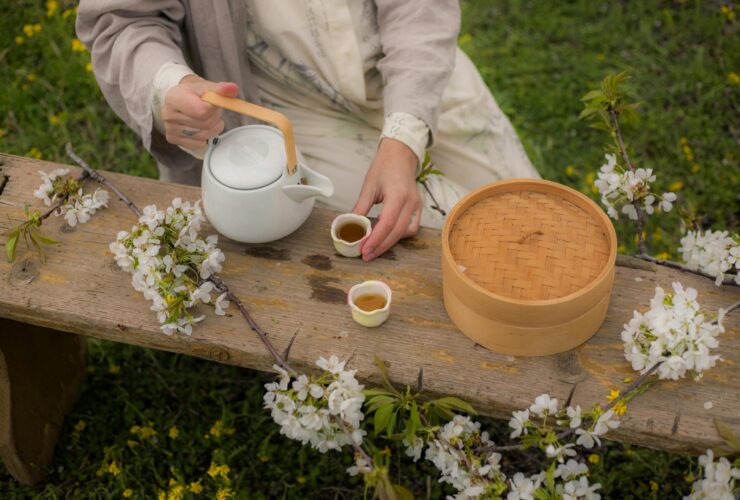We often talk about heartbreak after a breakup, but what about the heartbreak of never having had that kind of relationship at all?
More and more, people are taking to social media to talk about the pain of being “chronically single” – the one who has never had a long-term partner (or hasn’t in years), the one who shows up to weddings alone, the one who cheers for friends’ relationships while quietly wondering, “When will it be my turn? This is all too often misnamed a lack of self-love. But really, it’s something deeper. It’s a kind of invisible grief that deserves care and understanding.
What is “Invisible Grief?”

Not all grief comes from something we lose. Sometimes, it comes from something we never got to have.
For those who’ve been single for a long time, there may be:
- The sadness of not having experienced a kind of intimacy you long for.
- The insecurity and shame of not having received as much romantic attention as your peers, if at all.
- The ache of watching and celebrating friends hit life milestones such as marriage, children, anniversaries, while feeling forgotten and left behind.
- The quiet loneliness of holidays, birthdays, or even small everyday moments that remind you of that absence.
- Resentment about getting the shorter end of the stick in a society that not only prioritizes partnered people, but rewards them (think tax benefits, splitting rent, splitting gifts, etc.).
Unlike other losses, this one often goes unacknowledged. There’s no public ritual, no comfort from others. Well-meaning people say, “You’ll find someone!” or “Learn to love yourself first!” but that doesn’t hold space for the pain of not having someone right now. And as social creatures, we as humans are wired to seek companionship.
The Cultural Layer: Love, Family, and Expectations
For many Asian Americans, chronic singlehood can carry an extra layer of pressure and shame.
In many of our families, marriage isn’t just personal — it’s cultural and relational. It can symbolize stability, respectability, and fulfillment of filial duty. When everyone around you seems to be moving forward in relationships, it’s easy to feel like you’re falling behind, disappointing your family, or even being pitied.
Some clients share stories like:

- Feeling dread at family gatherings when aunties ask, “So… are you seeing anyone yet?”
- Watching siblings date and marry, and feeling a mix of happiness and hidden grief.
- Internalizing the message that being single means being incomplete or not fully grown, even if you’re thriving in career, friendships, and self-growth.
For children of immigrants, this can create an emotional tug-of-war between cultural belonging and personal authenticity. You might value independence and choice, yet still feel the sting of not fitting into a family or cultural script that prizes partnership.
Why It Hurts So Much
Part of the pain of chronic singlehood comes from the story underneath it.
Many people quietly carry beliefs like:
- “If I were lovable enough, someone would have chosen me.”
- “Something must be wrong with me.”
- “I’ve missed my chance.”
But these beliefs aren’t truths. Rather, they’re stories born from loneliness and comparison. They’re shaped by the messages we receive from family, media, and social expectations about what a “successful” life should look like.
It’s human to long for connection. That longing isn’t weakness; it’s a reflection of our capacity for love.
Making Space for the Grief
Grieving singlehood doesn’t mean giving up on love. It means honoring what’s been hard so you can move forward with clarity, not numbness.
Some ways to begin:
- Acknowledge the loss. You’re allowed to feel sad about something you’ve never had, or haven’t had in a very long time.
- Release the shame. Your relationship status isn’t a measure of worth. Your feelings about your relationships status are also not necessarily an indicator of how much (or how little) you value yourself.
- Find new sources of intimacy. Deep friendships, creative communities, and chosen family can provide emotional richness. You can both nurture your existing relationships and communities, AND remain open to the possibility of a romantic relationship.
- Reflect on your own story. What do you believe being partnered would give you? Safety, validation, care? How can you begin to cultivate at least some of those needs now, in other forms?

Redefining Love and Belonging
Our culture often treats romantic love as the pinnacle of emotional fulfillment. But love can take many forms: the laughter of friends, the care of family, the quiet pride in nurturing yourself.
You deserve relationships, romantic or otherwise, that meet you with tenderness, respect, and reciprocity.
Closing Thoughts
If you’re grieving chronic singlehood, your feelings are valid. You are not “behind,” “too dependent,” or invisible, even if it can feel that way. You’re simply human — longing, healing, and learning to hold your own heart with compassion. And I see you!
Seek An Individual Therapist at Yellow Chair Collective in Los Angeles or New York
If you are seeking therapy specifically tailored to your needs, consider reaching out to the therapists at Yellow Chair Collective. We understand that there may be unique contextual factors that may influence your experiences.
At our Los Angeles, CA, and New York City, NY-based therapy practice, we have many skilled, trauma-informed, and culturally sensitive therapists who can provide an empowering therapeutic experience. For your added convenience and simplicity, we offer online therapy for anyone in the state of California or New York. We know that navigating your mental health journey can be challenging, and we want to support you along the way. Follow the steps below to begin.
- Fill out the contact form to get connected with us.
- Get matched with one of our culturally sensitive therapists.
- Start the next step in your healing journey today.
Other Services at Yellow Chair Collective
There are many options for treatment using online therapy in California and New York, it just depends on what you’re needing. And while we certainly service Asian American folks, we also work with individuals from other cultures, too. So, whether you’re needing support in overcoming anxiety, burnout, trauma, or PTSD, we can help. Likewise, we serve teens and couples in need of support, too. So when you start online therapy with us, you can bring your whole self, including past struggles, cultural impacts, and more.






